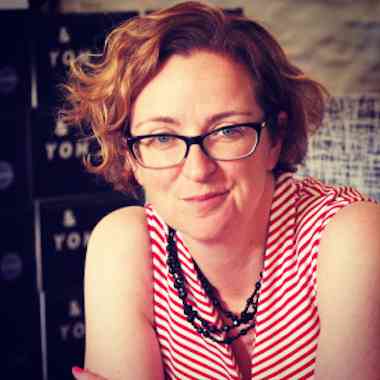
Forget about the complex tax arrangements of Google and Amazon that are sapping governments’ ability to collect tax. These problems will be dwarfed as technology and the economy evolves to the point where ordinary taxpayers turn their backs on the mass-market, mass-distribution model that has dominated society since the Industrial Revolution. Instead local products and services will be king.
And it’s not too far in the future that ordinary households could to literally go “off the grid”. Take, for example, the lightning fast advances in batteries to store solar power. In South Australia alone, it is now estimated that 50 per cent of the state is covered by residential solar power. Alford says there’s a real possibility homeowners will be able to divert their own solar power reserves to neighbours and vice-versa which could make obsolete the necessity to be connected to the mainstream electricity electricity network.
It’s all part of a wider trend to “shop local” that has gone beyond feel-good, inner-city hipster schtick to become a real-life health precaution. Take for example this week’s Hepatitis A contamination of frozen berries packaged in China and sold in Australian supermarkets. Suddenly farmers’ markets and community gardens have more appeal in a world of mass-produced food of uncertain origin.
It’s called “peer-to-peer” business and it’s simply an evolution of the black economy, barter system of exchange on a mass scale. And what right does the tax office have to your cash if your neighbour simply does you a favour?
“If I was the tax office I would be very worried, but for a community it’s fantastic,” Alford says.
It also has implications for politicians and their big-spending infrastructure plans. Gold-plated “poles and wires” electricity distribution networks can easily become expensive white elephants with an unexpected quirk of consumers’ use of technology.
Alford says the economic implications of “citizen disaggregation” – consumers turning their backs on mass production – are yet to be realised. From citizen journalists blogging on current affairs, to citizen scientists contributing to global science projects, to even citizen manufacturing: using 3D printers to produce everything from spare parts in remote areas to prosthetic limbs for pets at the local vet.
Residential architecture will also change. Families living the dream on a suburban block in 2015 may find by 2055 their homes have been rebuilt into multigenerational compounds. Connected but separate homes on the same block and occupied, where ageing grandparents, parents and adult children live together in answer to rising property prices and to provide care to the very young and very old members of the extended family.
Simon Cowan, from the Centre for Independent Studies, says the debate about the family home – which exploded over this week amid complaints wealthy people in $3 million mansions could still claim the age pension – has big implications for both government’s tax revenues and households’ immediate financial decisions.
“We could be looking at a generation of renters,” Cowan says, and that will have an impact on the children born today, over where they live, their job mobility, their decision whether to have a family of their own and eventually how they will be cared for before they die.
With computers predicted to replace traditional jobs, ranging from accountants, lawyers and even bus drivers, Alford hopes technology will mean there’ll be an evolution in the jobs that are valued by society. Instead there could be premium on the skills that “are important to being human” which can’t be replicated by a robot.
“And that’s creativity and empathy,” Alford says. In 2055, where an automated search engine can do much of the job of an accountant or a lawyer, it may be musicians, artists, childcare workers, and palliative care nurses who will become society’s best remunerated professions.